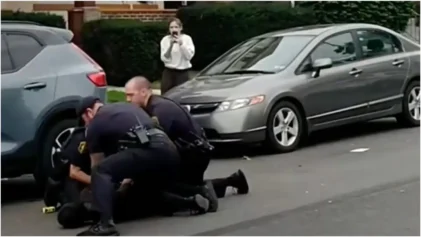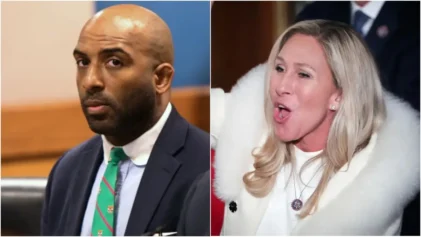
This is the third times James K. Knowles has been elected mayor of Ferguson. Photo by Bill Greenblatt/UPI.
Residents of Ferguson, Mo., on Tuesday, April 4, re-elected to a third term the mayor who deployed riot police amid intense protests sparked by the shooting death of Michael Brown.
In a tight race for the win, incumbent James K. Knowles snagged a victory against Black City Council member Ella Jones in the city’s first mayoral election since Brown was shot and killed by a white police officer in 2014. Knowles won more thsn 56 percent of the vote, beating out Jones, who sought to become Ferguson’s first African-American mayor.
“We all want the same thing,” Knowles said Tuesday night. “We’re all here for the same purpose, which is our community.”
Knowles, 37, who has spent the past seven years in office, expressed confidence that he, Jones and the other City Council members would continue working together for the betterment of the predominately Black city. Jones, who was elected to the City Council in 2015 and ran on a platform urging police to keep their body cameras turned on at all times, was expected to sweep the mayoral election both demographically and statistically. However, Ferguson’s election was yet another case of Black voters failing to show up to the polls and make their voices heard.
Of the city’s more-than 24,000 residents, only 3,727 people cast votes for the mayoral race. That’s less than one percent of the city’s registered voters. African-American residents have criticized the mayor for his handling of the Brown incident, but the few who turned out to vote Tuesday apparently still cast their ballots in his favor. Officials with St. Louis County, which handled the Ferguson election, didn’t respond to requests for information regarding the exact number of Blacks who showed up to vote.
“At some point, Black folks have to become their own catalysts for freedom and reform,” wrote Jason Johnson, political reporter for The Root. “If you have to be ‘inspired’ to vote against a mayor who twiddled his thumbs while Mike Brown’s dead body lay in the street for hours, maybe you don’t really deserve justice. That’s not how liberation works. That’s not how any part of democracy works.”
Ferguson is just the latest case of apathy among Black voters rearing its ugly head. Just last month, City Treasurer Tishaura Jones lost her bid to become St. Louis’ first Black female mayor after four other Black male candidates and the city’s Black residents failed to show up in her favor. Like Ferguson, St. Louis is a majority-Black city but has largely remained under the leadership of white politicians. Critics contend that opportunities for African-American political advancement rarely present themselves, but when they do, situations like what took place in Ferguson and St. Louis happen.
“I’m really disappointed that the ego, patriarchy and sexism won the day yesterday,” Jones said after losing the election. “When all the Black candidates met before filing closed, only the Black women decided to work together and support each other. When will we come together for the common good?
“Even if all the men in the race got together and decided to go with one male candidate, we would have had a much different outcome.”
As for the city of Ferguson and Knowles, this will be his last term as mayor, due to term limits. He was first elected to City Council at age 25 and was elected mayor just five years later.


